Jayme Weber
2022 Pegasus Scholar Report
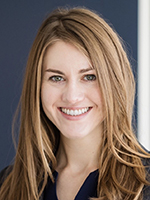
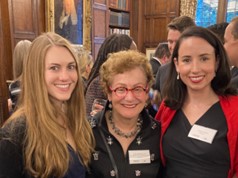 Ten years ago, the late Professor Jean Braucher invited John DeStefano III to speak to my 1L contracts class about his experience as a Pegasus Scholar in the UK. This fall, I saw a decade-long dream fulfilled as I myself traveled to the UK as a Pegasus Scholar in my own right. Before saying anything more, I want to thank the American Inns of Court and the Pegasus Scholarship Trust for creating and maintaining this incredible opportunity for young attorneys like me. Thank you also Cindy Dennis for your tireless work: The program would not be what it is without you. And thank you to Lady Rose of the UK Supreme Court, and to Estelle Dehon KC of Cornerstone Barristers, Emma Fenn of Garden Court Chambers, and Daisy Kell-Jones of Foundry Chambers, for each hosting me for a week and sharing your perspective on the UK practice of law. To the judges and barristers who hosted us in Scotland, Northern Ireland, and The Hague – including the inimitable Donald R. Findlay KC and Judge Joanna Korner CMG KC – thank you. Finally, thank you to all those who enhanced our experience along the way, especially Charlotte Branfield who will soon be a pupil barrister at Three Raymond Buildings Barristers, Nicholas Hardwick who gave us a tour of Christ Church in Oxford, the unnamed solicitor who confirmed that the clutch was out on our rental car, and the Scot who told me there was “a wee man” inside the postbox collecting my letters. I will cherish my time as a Pegasus Scholar for the rest of my life and am forever thankful to everyone who made the experience what it was.
Ten years ago, the late Professor Jean Braucher invited John DeStefano III to speak to my 1L contracts class about his experience as a Pegasus Scholar in the UK. This fall, I saw a decade-long dream fulfilled as I myself traveled to the UK as a Pegasus Scholar in my own right. Before saying anything more, I want to thank the American Inns of Court and the Pegasus Scholarship Trust for creating and maintaining this incredible opportunity for young attorneys like me. Thank you also Cindy Dennis for your tireless work: The program would not be what it is without you. And thank you to Lady Rose of the UK Supreme Court, and to Estelle Dehon KC of Cornerstone Barristers, Emma Fenn of Garden Court Chambers, and Daisy Kell-Jones of Foundry Chambers, for each hosting me for a week and sharing your perspective on the UK practice of law. To the judges and barristers who hosted us in Scotland, Northern Ireland, and The Hague – including the inimitable Donald R. Findlay KC and Judge Joanna Korner CMG KC – thank you. Finally, thank you to all those who enhanced our experience along the way, especially Charlotte Branfield who will soon be a pupil barrister at Three Raymond Buildings Barristers, Nicholas Hardwick who gave us a tour of Christ Church in Oxford, the unnamed solicitor who confirmed that the clutch was out on our rental car, and the Scot who told me there was “a wee man” inside the postbox collecting my letters. I will cherish my time as a Pegasus Scholar for the rest of my life and am forever thankful to everyone who made the experience what it was.
An Introduction to Legal London
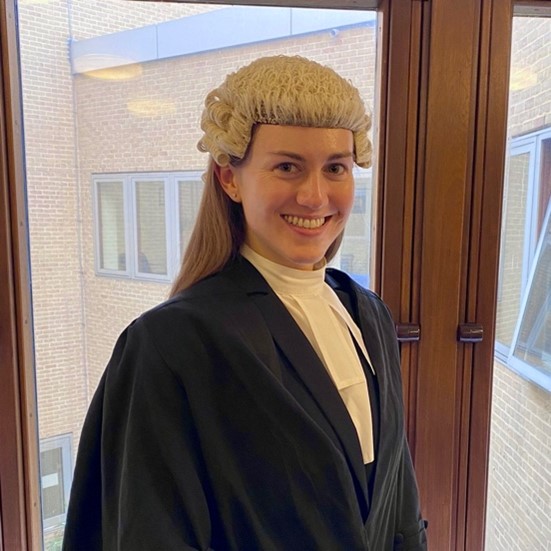 This section is for my American readers. As you may have heard, the legal profession in England is divided into solicitors and barristers. You may have also heard that barristers wear wigs and gowns in court, which is still true for many courts but notably not the UK Supreme Court. Those who practice civil law in the US (as I do) likely spend the vast majority of their time doing what would be the work of a solicitor in England, often with the persistent hope of getting opportunities to argue in court, which is the role of a barrister. Although there are solicitors’ offices in every part of England, the barristers are largely centralized in London with some hubs and frequent court appointments in other parts of the country. To become a barrister in England and Wales, one must be “called to the bar” by one of the four Inns of Court – Inner Temple, Middle Temple, Gray’s Inn, and Lincoln’s Inn – after obtaining a law degree (either through undergraduate studies or in a conversion program) and then completing a one-year bar course. The final requirement is to spend a year as a pupil training with a fully-fledged barrister.
This section is for my American readers. As you may have heard, the legal profession in England is divided into solicitors and barristers. You may have also heard that barristers wear wigs and gowns in court, which is still true for many courts but notably not the UK Supreme Court. Those who practice civil law in the US (as I do) likely spend the vast majority of their time doing what would be the work of a solicitor in England, often with the persistent hope of getting opportunities to argue in court, which is the role of a barrister. Although there are solicitors’ offices in every part of England, the barristers are largely centralized in London with some hubs and frequent court appointments in other parts of the country. To become a barrister in England and Wales, one must be “called to the bar” by one of the four Inns of Court – Inner Temple, Middle Temple, Gray’s Inn, and Lincoln’s Inn – after obtaining a law degree (either through undergraduate studies or in a conversion program) and then completing a one-year bar course. The final requirement is to spend a year as a pupil training with a fully-fledged barrister.
During our first week in London, we had the opportunity to tour the four Inns. The Inns each own a plot of land near the Strand in London. Most of the Inns’ buildings are hundreds of years old, with a beautiful dining hall and meeting rooms plus fields, gardens, and additional buildings rented out to barristers for their chambers and even some homes (flats). Both at the Inns and at the courts we visited, I was struck by the integration of the new into the old. London is an ancient city with gorgeous Victorian and even older architecture that has retained its character even as new technologies (like the internet) have been brought in to keep the buildings functional in the modern era. Inner and Middle Temple share the Temple Church, which dates back to the Knights Templar, survived the Blitz with only limited fire damage, and continues to operate as an Anglican church with weekly Evensong and Sunday services.
The remaining weeks of my Pegasus Scholarship were spent shadowing barristers and judges in courts around London, concluding with travels to Scotland and Northern Ireland (which each have their own Bar separate from the Bar of England and Wales) and finally the International Criminal Court in The Hague. A few major differences between the American and English legal systems are that barristers are mostly self-employed and must follow what is known as the cab rank rule. Together, these two principles mean that barristers within the same chambers (set) can be on opposite sides of a single case and will at various times represent opposing interests. For example, a criminal law barrister will sometimes represent the prosecution and at other times represent the defense. Likewise, an environmental law barrister will sometimes represent clients challenging governmental action and at other times defend the governmental actor from challenge. Not only can barristers within the same set be on opposite sides of a case, but the senior and junior barristers working together on a case can be from different sets.
Perhaps as a natural consequence of barristers routinely representing clients on both sides of an issue and working with a variety of peers, the Bar of England and Wales is highly collegial. During my week with Foundry Chambers, I observed what ended up being an “ineffective trial” (meaning it did not proceed and was rescheduled) in which Ellis Sareen was the defense barrister. Once the trial was called off, Ellis and I went to the pub with the prosecutor. Similarly, while observing a family law trial in which Amanda Jepson of 42 Bedford Row Barristers was representing the government, we had lunch with Amanda, the case manager, and the barristers representing the father and the children. It is difficult to imagine either scenario happening in the US. I am doubtful that the US will ever achieve the English level of collegiality in the legal profession, but I do believe it is a standard worth aiming for.
A Greater Appreciation for a Written Constitution
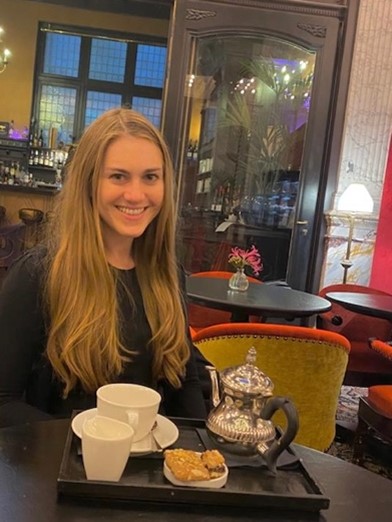 The US common law system derives from England’s common law system, and thus much of the law and procedures in the UK felt familiar to me. One significant difference is that the UK does not have a written constitution as the US does. I did not previously appreciate just how significant this difference can be. Because my first two placements were with barristers who practice criminal law at Garden Court and Foundry Chambers, I had the opportunity to see a number of criminal proceedings and get a sense of how the law can develop when the legislature is not constrained by a written constitution. The most striking example of this was that the UK Parliament by statute allows an adverse inference to be drawn from a criminal defendant’s silence both during a police interrogation and at trial. Perhaps unsurprisingly, criminal defendants testify more often in the UK than they do in the US. Although US courts allow an adverse inference to be drawn from silence in a civil case, our Supreme Court has concluded that doing so in a criminal case would violate the defendant’s Fifth Amendment right against self-incrimination. However much a US legislature wanted to change that rule, it could not be done absent a constitutional amendment or a tide change in our constitutional jurisprudence.
The US common law system derives from England’s common law system, and thus much of the law and procedures in the UK felt familiar to me. One significant difference is that the UK does not have a written constitution as the US does. I did not previously appreciate just how significant this difference can be. Because my first two placements were with barristers who practice criminal law at Garden Court and Foundry Chambers, I had the opportunity to see a number of criminal proceedings and get a sense of how the law can develop when the legislature is not constrained by a written constitution. The most striking example of this was that the UK Parliament by statute allows an adverse inference to be drawn from a criminal defendant’s silence both during a police interrogation and at trial. Perhaps unsurprisingly, criminal defendants testify more often in the UK than they do in the US. Although US courts allow an adverse inference to be drawn from silence in a civil case, our Supreme Court has concluded that doing so in a criminal case would violate the defendant’s Fifth Amendment right against self-incrimination. However much a US legislature wanted to change that rule, it could not be done absent a constitutional amendment or a tide change in our constitutional jurisprudence.
Care and Dependency
One of the greatest privileges of working at the Arizona Attorney General’s Office has been the opportunity to cover hearings in what we call dependency cases, where the Department of Child Safety (DCS) has removed a child from the home for abuse, neglect, or abandonment. The facts underlying these cases are often heartbreaking, but I have appreciated being able to represent the Department in a small handful of hearings a week when the assigned attorney cannot attend. At the outset of a dependency case, DCS will provide a number of reunification services to the parents through a network of nonprofit organizations. Most of the time, a dependency case ends in family reunification, guardianship, or adoption. Arizona’s Rules of Procedure for Juvenile Court, in line with federal law, direct the court to identify a permanency goal within a year of the child being removed from the home, although it may take several years (the most I have seen so far has been an unfortunate five) for permanency to be achieved.
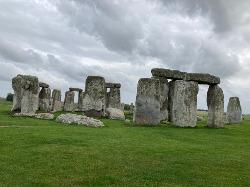 During our day shadowing Amanda Jepson at the East London Family Court, the proceeding felt familiar with the multitude of barristers and testimony by the parents addressing the allegations made against them. The timeline and potential outcomes of what England calls care cases, however, is very different from dependency in Arizona. Under English law, care cases must be resolved within 26 weeks (approximately six months) of being opened. Perhaps relatedly, care cases can be resolved with an order that the children remain in the foster care system until they reach adulthood (long-term or permanent fostering). It is difficult to imagine an Arizona case resolving anywhere close to six months after opening, and Arizona does not regard foster care as an option for permanency. It appears that both systems have considered how to balance the interests of prompt resolution and permanence and have come to almost opposite views. Although I appreciate Arizona’s emphasis on permanence, I imagine all of those involved with dependency cases would agree that prompt resolution is a value we must continuously strive for as well.
During our day shadowing Amanda Jepson at the East London Family Court, the proceeding felt familiar with the multitude of barristers and testimony by the parents addressing the allegations made against them. The timeline and potential outcomes of what England calls care cases, however, is very different from dependency in Arizona. Under English law, care cases must be resolved within 26 weeks (approximately six months) of being opened. Perhaps relatedly, care cases can be resolved with an order that the children remain in the foster care system until they reach adulthood (long-term or permanent fostering). It is difficult to imagine an Arizona case resolving anywhere close to six months after opening, and Arizona does not regard foster care as an option for permanency. It appears that both systems have considered how to balance the interests of prompt resolution and permanence and have come to almost opposite views. Although I appreciate Arizona’s emphasis on permanence, I imagine all of those involved with dependency cases would agree that prompt resolution is a value we must continuously strive for as well.
Women in the Law
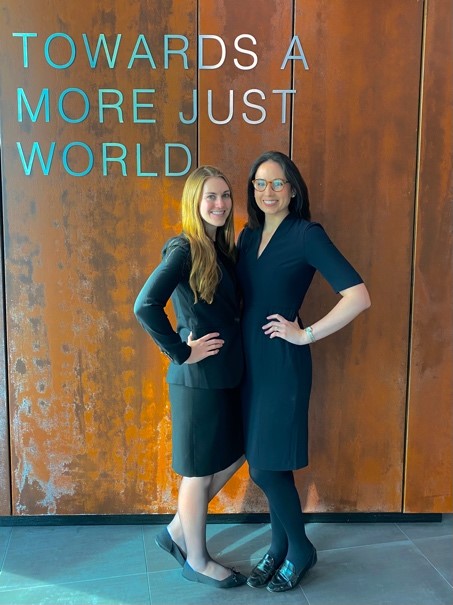 I will admit that I had expected to find the UK legal profession much better at retaining women and seeing them advance than the US legal profession is. Unfortunately for both countries, the same issues pervade in different forms. The Bar of England and Wales has the particular challenge of most barristers being self-employed such that there is no employer who could provide paid maternity leave, although the government does offer a baseline £600 per month maternity benefit for approximately nine months of leave. In the US, law firms and the federal government (but not most states) have begun to offer approximately three months of paid parental leave. There are steps both legal professions could take to ease the burden on primary caregivers: one UK judge suggested a simple improvement would be for courts and chambers not to demand that papers be prepared in one day when the situation does not call for such a compressed timeline and a week would suffice. But the US legal profession operates in such a way that most legal work is shared or at least capable of being shared by a team, which means that it can generally be redistributed for a period of time without the need to outsource the work to someone not already on the payroll. Although men and women attend law school in similar proportions, there is a significant phenomenon of women leaving the profession after having children. Paid maternity (and paternity) leave may not fully solve the problem, but it is a simple solution whose benefits (including the retention of talented professionals) would far outweigh any perceived costs.
I will admit that I had expected to find the UK legal profession much better at retaining women and seeing them advance than the US legal profession is. Unfortunately for both countries, the same issues pervade in different forms. The Bar of England and Wales has the particular challenge of most barristers being self-employed such that there is no employer who could provide paid maternity leave, although the government does offer a baseline £600 per month maternity benefit for approximately nine months of leave. In the US, law firms and the federal government (but not most states) have begun to offer approximately three months of paid parental leave. There are steps both legal professions could take to ease the burden on primary caregivers: one UK judge suggested a simple improvement would be for courts and chambers not to demand that papers be prepared in one day when the situation does not call for such a compressed timeline and a week would suffice. But the US legal profession operates in such a way that most legal work is shared or at least capable of being shared by a team, which means that it can generally be redistributed for a period of time without the need to outsource the work to someone not already on the payroll. Although men and women attend law school in similar proportions, there is a significant phenomenon of women leaving the profession after having children. Paid maternity (and paternity) leave may not fully solve the problem, but it is a simple solution whose benefits (including the retention of talented professionals) would far outweigh any perceived costs.
A Few Final Highlights
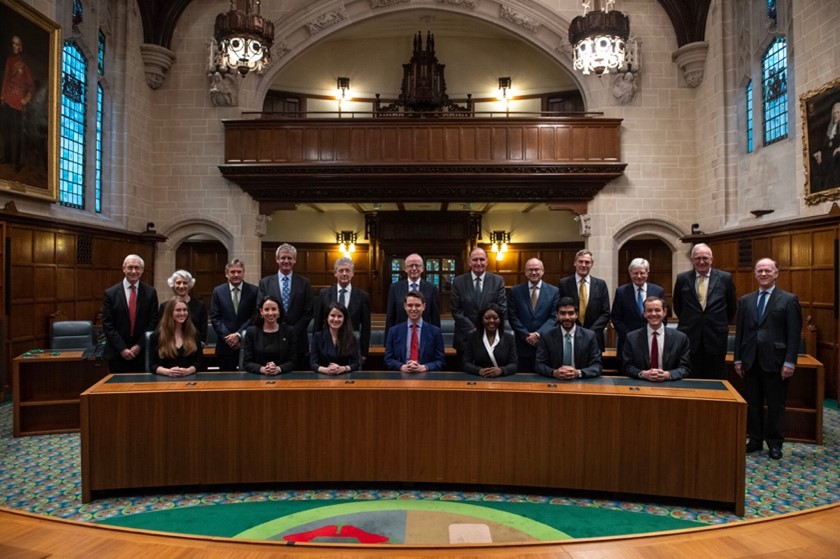 The Pegasus and Temple Bar Scholars had the incredible opportunity to spend one week with the UK Supreme Court justices and their judicial assistants (JAs) (akin to law clerks in the US). There was a moment where I was sitting with the JAs in their seats behind the justices during oral argument and thought to myself, “I can’t believe I’m here.” Even better, the Lady Chief Justice of Northern Ireland was sitting on the case by designation, and we subsequently met her in Northern Ireland a few weeks later. In addition to the amazing week at the UK Supreme Court, other highlights include chatting about various points of law with Estelle Dehon KC over our morning coffee during my week at Cornerstone Barristers; watching Donald R. Findlay KC conduct a brilliant and highly respectful cross-examination of the deceased’s sister-in-law in a Glaswegian murder trial; and learning to appreciate the restorative qualities of a good pot of tea with Charlotte Branfield during our time in The Hague. Once again, thank you to everyone who made this scholarship possible and to everyone who made my time across the pond the lovely experience it was.
The Pegasus and Temple Bar Scholars had the incredible opportunity to spend one week with the UK Supreme Court justices and their judicial assistants (JAs) (akin to law clerks in the US). There was a moment where I was sitting with the JAs in their seats behind the justices during oral argument and thought to myself, “I can’t believe I’m here.” Even better, the Lady Chief Justice of Northern Ireland was sitting on the case by designation, and we subsequently met her in Northern Ireland a few weeks later. In addition to the amazing week at the UK Supreme Court, other highlights include chatting about various points of law with Estelle Dehon KC over our morning coffee during my week at Cornerstone Barristers; watching Donald R. Findlay KC conduct a brilliant and highly respectful cross-examination of the deceased’s sister-in-law in a Glaswegian murder trial; and learning to appreciate the restorative qualities of a good pot of tea with Charlotte Branfield during our time in The Hague. Once again, thank you to everyone who made this scholarship possible and to everyone who made my time across the pond the lovely experience it was.